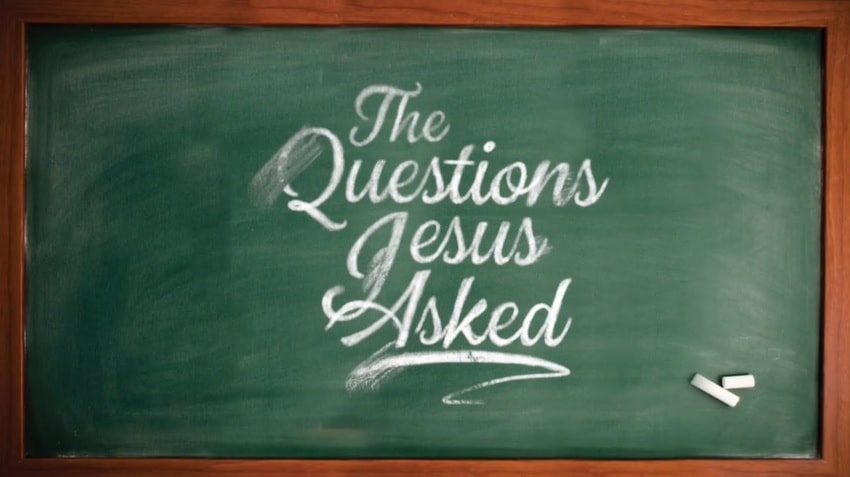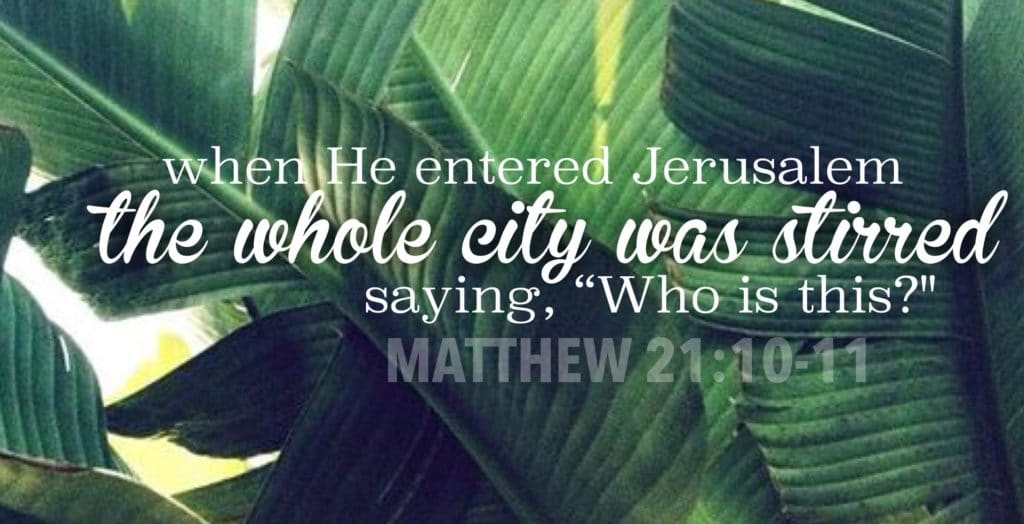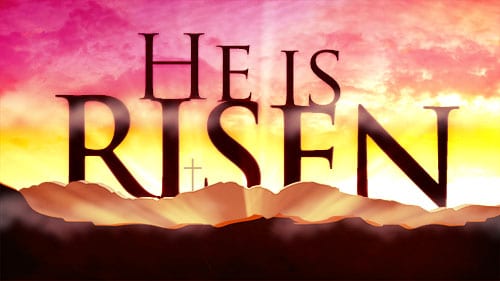The Questions Jesus Asked Part 8

This week in our Questions Jesus Asked series we are looking in Luke Chapter 13 and the question is, “what is the kingdom of God like?”
Luke 13:18-21 (NIV)
18 Then Jesus asked, “What is the kingdom of God like? What shall I compare it to? 19 It is like a mustard seed, which a man took and planted in his garden. It grew and became a tree, and the birds of the air perched in its branches.” 20 Again he asked, “What shall I compare the kingdom of God to? 21 It is like yeast that a woman took and mixed into a large amount of flour until it worked all through the dough.”
The Kingdom of God
Throughout His ministry, Jesus proclaims the Kingdom, demonstrates the Kingdom, and offers the Kingdom to those He comes into contact with.
Mark 1:14-15 (NIV)
14 After John was put in prison, Jesus went into Galilee, proclaiming the good news of God. 15 “The time has come,” he said. “The kingdom of God is near. Repent and believe the good news!”
Matthew 4:23 (NIV)
23 Jesus went throughout Galilee, teaching in their synagogues, preaching the good news of the kingdom, and healing every disease and sickness among the people.
In the prayer Jesus taught His disciples He reveals His heart about the Kingdom.
Matthew 6:10 (NIV)
10 your kingdom come, your will be done on earth as it is in heaven.
In Matthew 6:33 we are encouraged to seek first His Kingdom
Matthew 6:33 (NIV)
33 But seek first his kingdom and his righteousness, and all these things will be given to you as well.
So, what is the Kingdom of God?
I believe that when most people think of a “kingdom”, they think about a place (realm). By that I mean they think of a “kingdom” in geographical terms. An example would be the United Kingdom which includes Great Britain, Scotland, Wales, etc. The people of the kingdom live in its borders. Because of this, we tend to automatically think about the Kingdom of God as a place (realm). While this is partly true, there is a better way of understanding what the Kingdom of God is.
A dictionary definition of ‘kingdom” is: “The reign or rule a king has over his subjects.”
In Hebrew the word for Kingdom is malkût (mal-coot) and in the Greek word is basileia (bah-see-lay-a).
The primary meaning of kingdom contained in the Hebrew and Greek is “the rule, authority and sovereignty exercised by a king”. While a kingdom may indeed be a place (realm); and it may be the people who live within the borders of that place, these are secondary meanings. The primary meaning of kingdom is the sovereignty of the king, his authority to rule and reign. This understanding will really help in understanding the primary meaning in the verses about the Kingdom of God.
Mark 10:14-15 (NIV)
14 When Jesus saw this, he was indignant. He said to them, “Let the little children come to me, and do not hinder them, for the kingdom of God belongs to such as these. 15 I tell you the truth, anyone who will not receive the kingdom of God like a little child will never enter it.”
What is being received? God’s rule and reign.
Matthew 6:33 (NIV)
33 But seek first his kingdom and his righteousness, and all these things will be given to you as well.
What are we seeking? God’s rule and reign.
Matthew 6:10 (NIV)
10 your kingdom come; your will be done on earth as it is in heaven.
What are we praying to come? God’s rule and reign.
What is the Kingdom of God like?
The question that we are looking at that Jesus asks is “what is the Kingdom of God like?” Jesus teaches about the Kingdom of God using parables. Why parables? Parables are a teaching tool that help people discover the truth. They help people look at things in a way that allows them to process at a deeper level, to look at things from a new perspective. The person hearing the parable must think about what it means. When you find the truth in this manner it sticks with you. The cool thing about parables is that rather than impose truth on a person, they put people in a position to realize the truth.
The two short parables that are given by Jesus as an answer to the “what is the Kingdom of God like” question He asks in Luke need to be evaluated with the understanding of the Kingdom of God that we have been talking about.
The parable of the mustard seed:
Luke 13:18-19 (NIV)
18 Then Jesus asked, “What is the kingdom of God like? What shall I compare it to? 19 It is like a mustard seed, which a man took and planted in his garden. It grew and became a tree, and the birds of the air perched in its branches.”
The kingdom of God was inaugurated when Jesus came the first time, it will continue to grow until He comes back the second time. The Kingdom is here now in part, but it will be fully here when He returns.
The parable of yeast:
Luke 13:20-21 (NIV)
20 Again he asked, “What shall I compare the kingdom of God to? 21 It is like yeast that a woman took and mixed into a large amount of flour until it worked all through the dough.”
This parable is about the transforming power of the Kingdom to change individuals and communities. When Jesus returns, the Kingdom will be consummated, worked through all the dough.
These parables are a picture of what Jesus has done and will do. He came and inaugurated the Kingdom of God, when He returns, He will consummate the Kingdom. Until He does return, people have the opportunity to receive or reject the message of the Kingdom. We will be looking at all of this and more this weekend at Keys Vineyard Church so be sure to join us in-person or online.
Steve Lawes is a church encourager and the lead pastor of Keys Vineyard Church.



